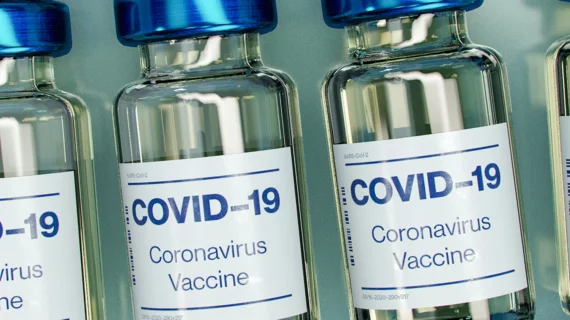CDC: Updated COVID jab significantly reduces odds of infection
The latest COVID-19 vaccine began entering recipients’ bodies last September. Now comes early CDC data supporting the formulation’s general effectiveness.
The agency is reporting the vaccine—monovalent XBB.1.5—seems to cut the risk of symptomatic infection by around 54%.
The shot protects against the SARS-CoV-2 virus’s JN.1 strain “and other circulating lineages,” CDC states, noting that JN.1 became predominant last month.
Based on the early returns, CDC is recommending everyone aged 6 months and older should receive the jab.
The advisement comes with a mild caveat:
“These early estimates include the period only through 119 days since vaccination, a relatively brief postvaccination period, with no substantial waning. Because consistent patterns of waning vaccine effectiveness were observed after original monovalent and bivalent COVID-19 vaccination, waning of vaccine effectiveness is expected with more time since updated vaccination, especially against less severe outcomes such as symptomatic infection.”
The agency points out the need for additional analyses of XBB.1.5’s effectiveness at longer intervals post-injection to figure out how quickly the vaccine’s protection wanes.
The study cohort was made up of more than 9,000 healthy adults who were
The findings are based on more than 9,000 adults who were tested for COVID between mid-September and early January.
Full CDC report here.

